Roasted peanuts have long been a beloved snack enjoyed by people of all ages around the world. The crunchy texture, nutty flavor, and satisfying saltiness make them a go-to choice for satisfying hunger pangs and fueling busy days. While peanuts are commonly enjoyed as a snack, there is some debate surrounding whether it is advisable to consume them on an empty stomach. In this article, we will explore the benefits and potential drawbacks of eating roasted peanuts on an empty stomach to help you make an informed decision about when and how to enjoy this delicious treat. One of the primary concerns regarding consuming roasted peanuts on an empty stomach is the risk of digestive issues. Nuts, including peanuts, are high in fat and protein, which can be difficult for some individuals to digest, especially when eaten alone. When consumed on an empty stomach, these macronutrients may sit in the stomach longer, leading to feelings of discomfort, bloating, and even indigestion in some cases.
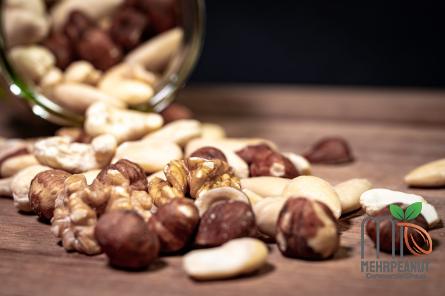
.
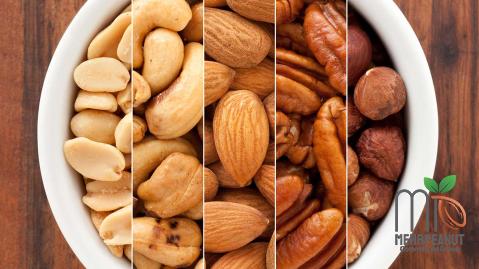 If you have a sensitive stomach or a history of digestive issues, you may want to exercise caution when eating roasted peanuts on an empty stomach. However, it’s important to note that for many people, enjoying roasted peanuts on an empty stomach does not lead to any adverse effects. In fact, some individuals find that the protein and healthy fats in peanuts help to stave off hunger and provide a sustained source of energy throughout the morning or afternoon. The combination of protein and fats in peanuts can help to stabilize blood sugar levels, preventing spikes and crashes that can leave you feeling lethargic and irritable. In addition to being a satisfying snack, roasted peanuts also offer a range of health benefits. Peanuts are an excellent source of plant-based protein, making them a great choice for vegetarians and vegans looking to boost their protein intake. Protein is essential for muscle repair and growth, as well as for supporting a healthy immune system. By including peanuts in your diet, you can help ensure that you are meeting your body’s protein needs and supporting overall health and wellness. Peanuts are also rich in heart-healthy monounsaturated fats, which have been linked to a reduced risk of heart disease and stroke. These healthy fats can help to lower LDL (bad) cholesterol levels while increasing HDL (good) cholesterol levels, promoting cardiovascular health. In addition to their healthy fat content, peanuts are a good source of fiber, which is important for digestive health and can help to keep you feeling full and satisfied between meals. Another benefit of consuming roasted peanuts on an empty stomach is their nutrient density. Peanuts are packed with essential vitamins and minerals, including vitamin E, folate, magnesium, and potassium. These nutrients play a vital role in supporting various bodily functions, such as promoting healthy skin, supporting nerve function, and regulating blood pressure. By incorporating peanuts into your diet, you can help ensure that you are meeting your body’s nutritional needs and supporting overall health and wellbeing.
If you have a sensitive stomach or a history of digestive issues, you may want to exercise caution when eating roasted peanuts on an empty stomach. However, it’s important to note that for many people, enjoying roasted peanuts on an empty stomach does not lead to any adverse effects. In fact, some individuals find that the protein and healthy fats in peanuts help to stave off hunger and provide a sustained source of energy throughout the morning or afternoon. The combination of protein and fats in peanuts can help to stabilize blood sugar levels, preventing spikes and crashes that can leave you feeling lethargic and irritable. In addition to being a satisfying snack, roasted peanuts also offer a range of health benefits. Peanuts are an excellent source of plant-based protein, making them a great choice for vegetarians and vegans looking to boost their protein intake. Protein is essential for muscle repair and growth, as well as for supporting a healthy immune system. By including peanuts in your diet, you can help ensure that you are meeting your body’s protein needs and supporting overall health and wellness. Peanuts are also rich in heart-healthy monounsaturated fats, which have been linked to a reduced risk of heart disease and stroke. These healthy fats can help to lower LDL (bad) cholesterol levels while increasing HDL (good) cholesterol levels, promoting cardiovascular health. In addition to their healthy fat content, peanuts are a good source of fiber, which is important for digestive health and can help to keep you feeling full and satisfied between meals. Another benefit of consuming roasted peanuts on an empty stomach is their nutrient density. Peanuts are packed with essential vitamins and minerals, including vitamin E, folate, magnesium, and potassium. These nutrients play a vital role in supporting various bodily functions, such as promoting healthy skin, supporting nerve function, and regulating blood pressure. By incorporating peanuts into your diet, you can help ensure that you are meeting your body’s nutritional needs and supporting overall health and wellbeing.
..
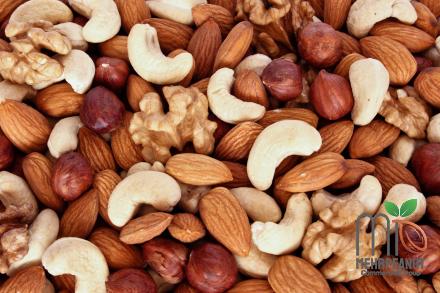 In addition to their nutritional benefits, roasted peanuts are also a convenient and portable snack option. Whether you’re on the go, at work, or relaxing at home, roasted peanuts are an easy snack to pack and enjoy whenever hunger strikes. Their long shelf life and resistance to spoilage make them an ideal pantry staple, ensuring that you always have a satisfying and nutritious snack on hand. When it comes to enjoying roasted peanuts on an empty stomach, moderation is key. While peanuts offer a range of health benefits, it’s important not to overindulge, as their high fat and calorie content can add up quickly. Be mindful of portion sizes and aim to incorporate a variety of nutrient-dense foods into your diet to support overall health and wellness. In conclusion, while there is some debate surrounding the consumption of roasted peanuts on an empty stomach, many individuals find that they can enjoy this tasty snack without experiencing any negative effects. Peanuts offer a range of health benefits, including providing a good source of protein, healthy fats, fiber, and essential vitamins and minerals. By including roasted peanuts in your diet in moderation, you can enjoy a satisfying snack that supports your overall health and wellbeing. So next time you’re feeling hungry on an empty stomach, reach for a handful of roasted peanuts and savor the delicious crunch and nutty flavor while reaping the health benefits they have to offer. The versatility of roasted peanuts extends beyond just being a convenient and nutritious snack. In culinary circles, peanuts are often used in a variety of dishes, adding depth of flavor, texture, and nutritional benefits. From savory stir-fries and peanut butter sandwiches to decadent desserts like peanut butter cookies and peanut brittle, peanuts can elevate a wide range of dishes and satisfy a variety of cravings. One popular way to incorporate roasted peanuts into your meals is by using them as a topping or garnish. Sprinkling chopped peanuts over salads, noodle dishes, and stir-fries can add a satisfying crunch and nutty flavor to your favorite recipes. Additionally, combining peanuts with other ingredients like soy sauce, ginger, garlic, and chili peppers can create a delicious peanut sauce that can be used as a dip, dressing, or marinade. For those with a sweet tooth, roasted peanuts can be transformed into delectable treats that are sure to satisfy even the most discerning dessert lover. Peanut butter cups, peanut butter fudge, and peanut butter swirl brownies are just a few examples of the indulgent desserts that can be made with roasted peanuts. The rich, creamy texture of peanut butter paired with the crunchy texture of roasted peanuts creates a winning combination that is sure to please any palate.
In addition to their nutritional benefits, roasted peanuts are also a convenient and portable snack option. Whether you’re on the go, at work, or relaxing at home, roasted peanuts are an easy snack to pack and enjoy whenever hunger strikes. Their long shelf life and resistance to spoilage make them an ideal pantry staple, ensuring that you always have a satisfying and nutritious snack on hand. When it comes to enjoying roasted peanuts on an empty stomach, moderation is key. While peanuts offer a range of health benefits, it’s important not to overindulge, as their high fat and calorie content can add up quickly. Be mindful of portion sizes and aim to incorporate a variety of nutrient-dense foods into your diet to support overall health and wellness. In conclusion, while there is some debate surrounding the consumption of roasted peanuts on an empty stomach, many individuals find that they can enjoy this tasty snack without experiencing any negative effects. Peanuts offer a range of health benefits, including providing a good source of protein, healthy fats, fiber, and essential vitamins and minerals. By including roasted peanuts in your diet in moderation, you can enjoy a satisfying snack that supports your overall health and wellbeing. So next time you’re feeling hungry on an empty stomach, reach for a handful of roasted peanuts and savor the delicious crunch and nutty flavor while reaping the health benefits they have to offer. The versatility of roasted peanuts extends beyond just being a convenient and nutritious snack. In culinary circles, peanuts are often used in a variety of dishes, adding depth of flavor, texture, and nutritional benefits. From savory stir-fries and peanut butter sandwiches to decadent desserts like peanut butter cookies and peanut brittle, peanuts can elevate a wide range of dishes and satisfy a variety of cravings. One popular way to incorporate roasted peanuts into your meals is by using them as a topping or garnish. Sprinkling chopped peanuts over salads, noodle dishes, and stir-fries can add a satisfying crunch and nutty flavor to your favorite recipes. Additionally, combining peanuts with other ingredients like soy sauce, ginger, garlic, and chili peppers can create a delicious peanut sauce that can be used as a dip, dressing, or marinade. For those with a sweet tooth, roasted peanuts can be transformed into delectable treats that are sure to satisfy even the most discerning dessert lover. Peanut butter cups, peanut butter fudge, and peanut butter swirl brownies are just a few examples of the indulgent desserts that can be made with roasted peanuts. The rich, creamy texture of peanut butter paired with the crunchy texture of roasted peanuts creates a winning combination that is sure to please any palate.
…
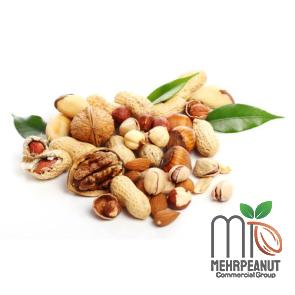 In addition to their culinary uses, roasted peanuts can also be incorporated into your skincare routine to promote healthy skin from the inside out. The vitamin E and healthy fats found in peanuts can help nourish and moisturize the skin, while the antioxidants present in peanuts can help protect against free radical damage and premature aging. By snacking on roasted peanuts regularly and using peanut oil or peanut butter topically, you can support healthy, radiant skin and combat common skin concerns. When it comes to purchasing roasted peanuts, it’s important to look for high-quality options that have been prepared using minimal processing and additives. Opt for dry roasted peanuts that have been seasoned with simple ingredients like salt or spices, rather than those that are coated in sugary glazes or artificial flavors. To ensure freshness, store your roasted peanuts in an airtight container in a cool, dark place, away from moisture and heat. While roasted peanuts can be a nutritious and delicious snack choice, it’s essential to keep in mind that individual responses to food can vary. If you have a history of food allergies or sensitivities, it’s best to consult with a healthcare provider before incorporating roasted peanuts into your diet. Additionally, if you experience any adverse reactions after consuming peanuts, such as itching, swelling, or difficulty breathing, seek medical attention immediately, as these could be signs of a severe allergic reaction. In conclusion, roasted peanuts are a versatile and nutritious snack option that can be enjoyed in a variety of ways. Whether you choose to snack on them alone, incorporate them into your favorite recipes, or apply them topically for skincare benefits, roasted peanuts offer a range of health benefits and culinary possibilities. By enjoying roasted peanuts in moderation and paying attention to your body’s responses, you can savor the delicious flavor, satisfying crunch, and numerous health benefits that peanuts have to offer. So go ahead, indulge in a handful of roasted peanuts on an empty stomach and experience the joy of this beloved snack for yourself.
In addition to their culinary uses, roasted peanuts can also be incorporated into your skincare routine to promote healthy skin from the inside out. The vitamin E and healthy fats found in peanuts can help nourish and moisturize the skin, while the antioxidants present in peanuts can help protect against free radical damage and premature aging. By snacking on roasted peanuts regularly and using peanut oil or peanut butter topically, you can support healthy, radiant skin and combat common skin concerns. When it comes to purchasing roasted peanuts, it’s important to look for high-quality options that have been prepared using minimal processing and additives. Opt for dry roasted peanuts that have been seasoned with simple ingredients like salt or spices, rather than those that are coated in sugary glazes or artificial flavors. To ensure freshness, store your roasted peanuts in an airtight container in a cool, dark place, away from moisture and heat. While roasted peanuts can be a nutritious and delicious snack choice, it’s essential to keep in mind that individual responses to food can vary. If you have a history of food allergies or sensitivities, it’s best to consult with a healthcare provider before incorporating roasted peanuts into your diet. Additionally, if you experience any adverse reactions after consuming peanuts, such as itching, swelling, or difficulty breathing, seek medical attention immediately, as these could be signs of a severe allergic reaction. In conclusion, roasted peanuts are a versatile and nutritious snack option that can be enjoyed in a variety of ways. Whether you choose to snack on them alone, incorporate them into your favorite recipes, or apply them topically for skincare benefits, roasted peanuts offer a range of health benefits and culinary possibilities. By enjoying roasted peanuts in moderation and paying attention to your body’s responses, you can savor the delicious flavor, satisfying crunch, and numerous health benefits that peanuts have to offer. So go ahead, indulge in a handful of roasted peanuts on an empty stomach and experience the joy of this beloved snack for yourself.
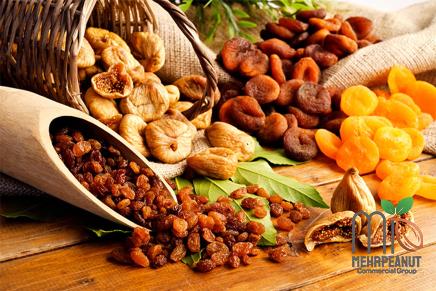
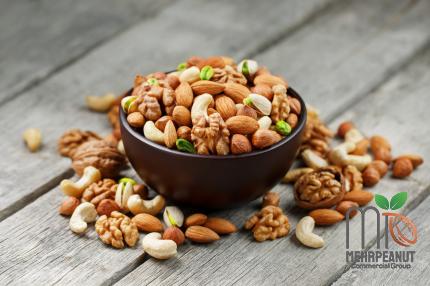
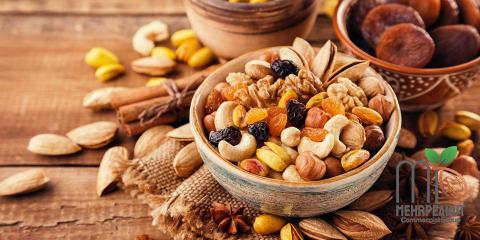
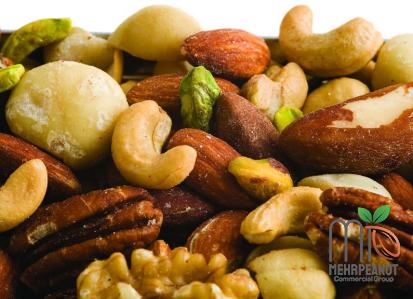
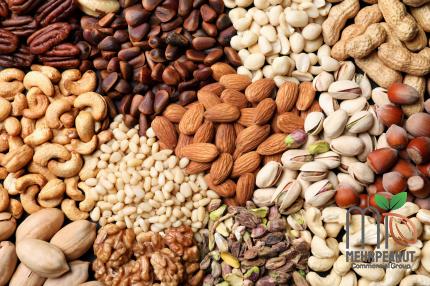
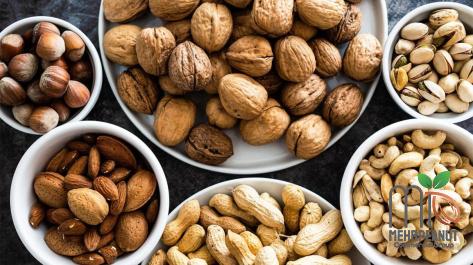
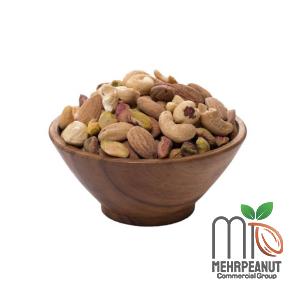
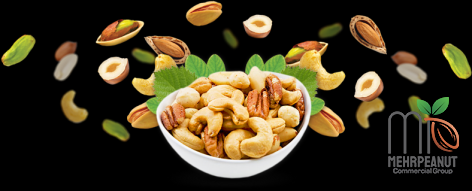
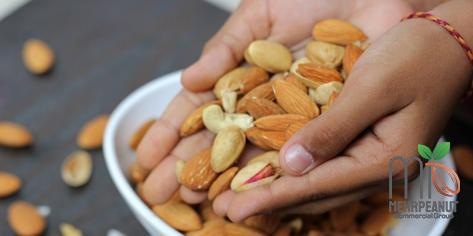
Your comment submitted.